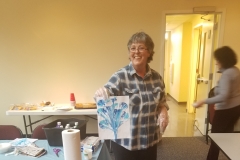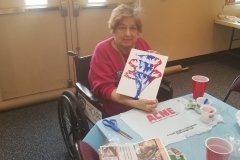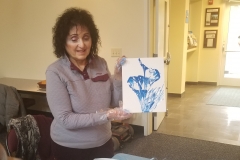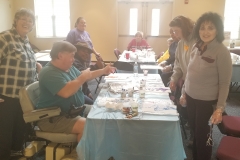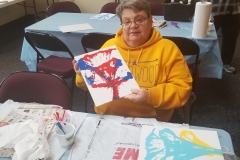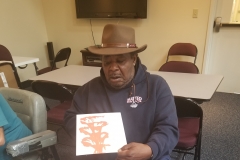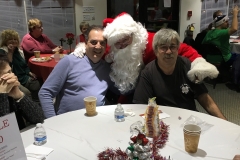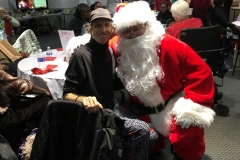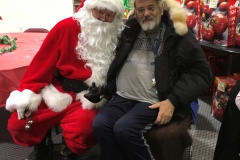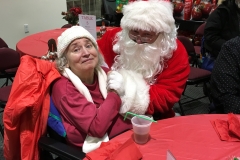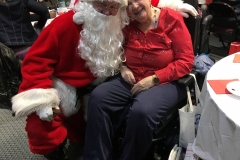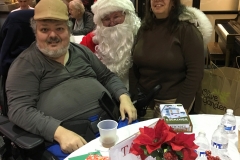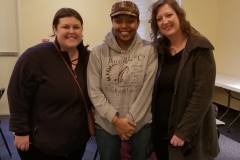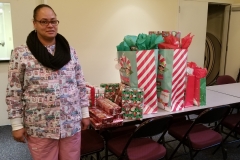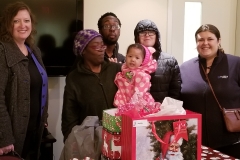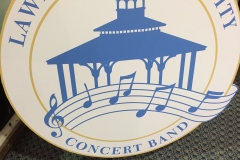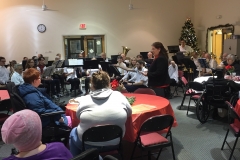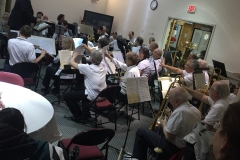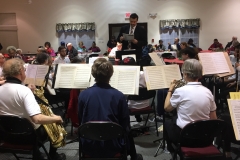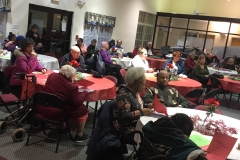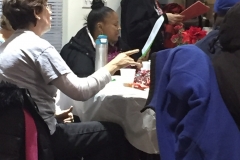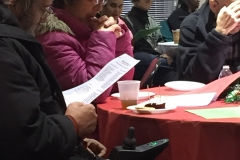Announcements
“My Two Cents” – February 2019
So, last month I talked about the scams that are often put upon the disabled and senior communities, and I would like continue that dialogue. By the way, these don’t only apply to seniors
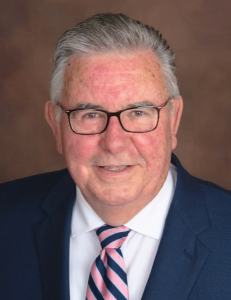
and disabled people; they apply to everyone, and they come in a variety of methods and modes.
Phone Calls: You may get a call from someone who says they are from Microsoft and have received an alert from your computer that you have a virus, and they want to get your password so that they can fix it. So, you give them your password and all of a sudden nothing works on your computer, or, worse, they now have access to all your data on your computer like other passwords, maybe credit card numbers, or social security information. Usually, legitimate computer agencies do not call you, YOU call them. Hopefully you contact the phone number of the real organization for help, which can be verified before giving out information. By you making the call, you helpfully have verified the legitimate contacts for Microsoft ( or whoever ) to address your problem. Furthermore, if you have been using your computer and haven’t had any issues, chances are the call you got was bogus.
Also, some callers will say they are from IRS or some other company and that you are past due on your bill, and so they are willing to take a payment over the phone. Never give Credit Card numbers information over the phone unless you have already verified the number and agency. IRS will NEVER call you, they do everything through the mail; so if someone says they are from the IRS, hang up immediately.
Computer messages: Again, you may get an email that looks like it comes from Apple or Microsoft, and it may say that you have won a free computer; and in order to get it, you just need to fill out an online form that asks for your social security number and a credit card number. Again, don’t respond to this email, better yet don’t open up any emails that you don’t recognize the email address. This is, again, another way to get personal information and or infiltrate your computer. Once in, they can manipulate and monitor your emails from afar, reading everything you send or get via email. ONLY OPEN UP EMAILS THAT YOU RECOGNIZE THE EMAIL ADDRESS. Delete all the others.
Online Purchases: Today we all buy stuff on the internet using our credit cards. For these purchases only buy from sites that you know, such as Amazon, or from major stores like Best Buy or Walmart. National brands will have secure website, and only use a credit card, NOT A DEBIT CARD. Credit cards offer some protection for your purchase for which you can dispute, or send back for a credit if not satisfied. Debit cards are like cash, once you purchase, it will be hard to get your money back, regardless of the reason. Credit cards have what is called,” Dispute Resolution” and will do an investigation about the purchase and usually will support you with any returns.
Finally, there is an old adage that says, “Whatever seems too good to be true, usually is (too good to be true) and therefore unrealistic and false. And always back away from anyone or anything that has to be done, right away or on the spot, these are usually scams. Legitimate vendors will be glad to let you think about a purchase before making it. Most purchases can be held off until the next day, so that you have time to do some research and think about the issue.
Hospital Heroines Make For a Hearty Holiday for Lawrence Tenants
This past December Project Freedom at Lawrence held their annual tenant holiday party. Thirty tenants plus guests enjoyed a night of fun, music, gifts, food and laughter. With the generous help of volunteers from Notre Dame and Somerville High School, Gene and Michele Menges, Deborah Heart and Lung Hospital and many anonymous supporters, the event went off without a hitch!
As the tenants gathered in the entrance, many were sneaking peeks at the tables filled with gifts, anticipating the auction.
After enjoying a delicious dinner from Chiarello’s, and getting halfway through the Chinese Auction, the star of the night showed up! Santa escorted by his elves from the Slackwood Firehouse came in ringing bells. Santa made sure to stop at every table and take pictures with every tenant! The photos show laughing, smiling and pure bliss. All photos were printed out and delivered to each tenant’s front door to keep the memory of such a joyful evening. One tenant, began to cry as she expressed to Santa that his visit warmed her heart and lifted her spirits.
As Santa completed his rounds becoming clearly over heated by his attire, he stated how deeply moved and honored he felt to be a part of this special evening. Santa said he could go on forever visiting with our tenants as his heart was warmed by the smiles on their faces.
Every tenant went home not only with their own personal gift bag (donated by Michele and Gene Menges) but also with gifts won during our auction. This auction had over 90 gifts up for grabs covering eight tables. These gifts ranged from coloring books to China dinnerware.
None of this would have been possible without the generosity and selflessness of Deborah Heart and Lung Hospital! For the third year, the nurses and aides at Deborah have gone to extreme lengths to make a significant difference in the lives of so many. The hospital staff members not only donated gifts but also their time to help our tenants have an amazing and memorable holiday season. Staff and tenants at Project Freedom would like to thank these angels for all they do.
In Natural Disasters, a Disability Can Be a Death Sentence
“Always ask people if they need help.” by December 30, 2018
Several of the 88 people killed in the Camp fire that devastated Butte County, California, in November had disabilities.
Their deaths were only the latest example of a tragic reality: When disaster strikes, people with disabilities are disproportionately affected. There are no statistics that show how many disabled people in the US say they could easily evacuate in an emergency, but around the world, just 20 percent of disabled people say they would be able to do so. And only 31 percent said they would have someone to help them in an emergency, according to a 2013 United Nations global survey. Click Here to read more.
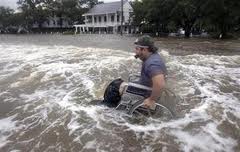
Our own Franklin Savings Bank friends donated gifts to 3 of our lovely families for Christmas!!
Happy Holidays From Freedom Village @ Woodstown

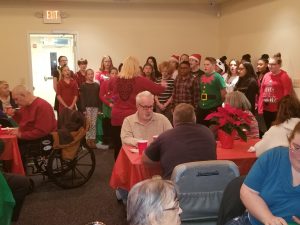
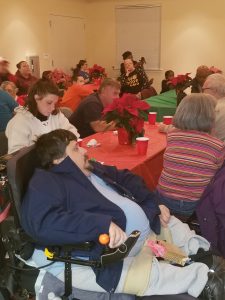
Freedom Village at Gibbsboro Breaking Ground in South Jersey
There will soon be affordable rental properties available for those with disabilities in south Jersey.
A groundbreaking ceremony was held Monday morning for the brand new Freedom Village.
The 72 unit rental community will be built on seven acres of land in Gibbsboro, Camden County.
Lawrence Band Brings Holiday Cheer to Tenants
Tenants from Robbinsville, Hamilton, and Lawrence gathered at Project Freedom at Lawrence to hear holiday and winter season music from the Lawrence Community Band.
30+ band members and 35 attendees made for a packed night of beautiful holiday music and a joyful atmosphere! The band was spectacular and the audience truly enjoyed singing along to all of their holiday favorites.
Why Do I #CripTheVote? Because the Disability Vote is Power
By Randall Oldenburg
Randall Oldenburg is a writer and thinker who is primarily concerned with topics in disability studies. As a philosophy student, he worked primarily on issues at the intersection of disability, language, and ethics.
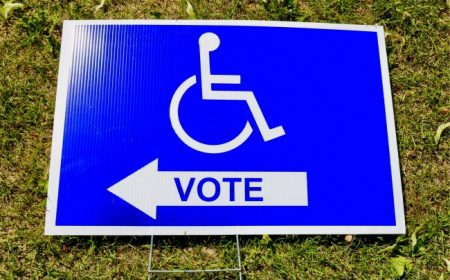 As a child, I didn’t think being disabled had anything to do with voting, or vice versa. I saw that my parents always voted, but I didn’t see it as an important part of my life as an American. Experience taught me just how wrong I was.
As a child, I didn’t think being disabled had anything to do with voting, or vice versa. I saw that my parents always voted, but I didn’t see it as an important part of my life as an American. Experience taught me just how wrong I was.
When I was 18 and first tried to vote, I almost didn’t succeed. There were many hurdles, including obtaining transportation, filling in my ballot, and proving my identity.
I had no driver’s license and didn’t yet have a government identification card. My disability didn’t completely destroy my capacity to vote, though. I didn’t have to worry. I had my brother to vouch that I was who I said I was.
“Can you vouch for him?” The volunteer asked my brother, flitting his hand toward me. I was already stressed, and now I felt my identity being doubted. I felt small. Read More Here
From Norman’s Desk – November 2018

The petition begins: The New Jersey Disability Community wholeheartedly opposes efforts by companies, cities, and states to ban single use plastic straws. These policies create barriers to independence, community integration, and daily living for people with disabilities, work counter to our community ideals of universal access, and place an unnecessary burden on people with disabilities to fight for the accommodations we need to live independently.
The petition was started because well-intended but unwitting legislators are proposing legislation that will literally force people with disabilities who need straws to drink to bring their own to restaurants. The proposed legislation is aimed at saving whales and turtles by keeping plastic straws out of the ocean. A noble and worthy cause, but why pick on people with disabilities who need straws?
Many people with various types of disabilities rely on single-use plastic straws to drink, eat, and take medication independently. Many people reading this can relate to this. Currently, no alternatives to single-use flexible plastic straws exist that are safe, sanitary, and affordable for people with disabilities. Until these alternatives exist, it is unacceptable to create more barriers to independence and access by restricting plastic straw use.
Much of the fervor surrounding plastic straws is based entirely on viral videos and false statistics. Plastic straws make up only about .03% of plastic waste in the ocean (fishing nets by contrast make up 46%). To risk the rights to independence and liberty that our community has fought for only .03% of waste is unacceptable to our community! Furthermore, “offer-first” policies at restaurants have been shown to reduce straw use by up to 80% without creating any barriers to access.
Everybody wants to save the whale and the turtle, but nobody outside of our community seems to grasp that straws are tools for people with disabilities to live healthy, independent, and productive lives as equal members of our community. The disability community believes in creating policies that protect the environment, but we also believe that this can be done in ways that do not harm the disability community.
Though some cities and states have incorporated “disability exceptions” into their straw ban legislation, the disability community remains firm in our opposition. Medical exceptions force people with disabilities to disclose their disability to store workers. Requiring this puts an undue burden on disabled customers who already experience discrimination and victimization.
Misconceptions and stereotypes about what a “real” disability looks like can also lead wait staff to question the validity of a customer’s need for a straw causing them to deny, harass, or shame the customer. Do we want teenaged wait staff deciding who has a disability?/
The harsh penalties established by straw ban legislation provide incentive for vendors to err on the side of caution by routinely denying straws to anyone who requests them. It is also unlikely that stores will continue to stock plastic straws because of the (false) perception that people with disabilities make up only a small percentage of the population. This again creates an added barrier for people with disabilities. Now, when we decide to go out to dinner, not only do we have to call ahead to find if the space is accessible, but we must also find out if they have straws
While some may suggest that people who need straws simply carry around their own, this is an unfair request for several reasons. First, with straw bans sweeping the nation, single use plastic straws will inevitably become more expensive and difficult to obtain even for individual use. Second, it creates an unnecessary financial burden on people with disabilities who already experience increased rates of poverty, functioning as a form of “disability tax.” Eventually, these costs will be passed on to the taxpayer as the need for straws becomes “medicalized” to justify them as medical necessity so Medicaid picks up the ever increasing expense
 In light of all of these reasons and more, the disability community is asking the New Jersey Legislators three things. First to reject any legislation that restricts access to single use plastic straws. Second, create an action plan to ensure the voices of people with disabilities are heard on all legislation before it reaches a vote. Finally, pass legislation that explicitly protects the right of people to access single-use plastic straws upon request in accordance with the ADA.
In light of all of these reasons and more, the disability community is asking the New Jersey Legislators three things. First to reject any legislation that restricts access to single use plastic straws. Second, create an action plan to ensure the voices of people with disabilities are heard on all legislation before it reaches a vote. Finally, pass legislation that explicitly protects the right of people to access single-use plastic straws upon request in accordance with the ADA.
Maggie Leppert of the Alliance Center for Independence provided much of the factual foundation for this column. My thanks to Maggie, a future leader in the NJ disability advocacy community.
Norman A. Smith
Follow me on Twitter @normansmith02
Follow us on Twitter @TheFreedomGuys
“Like” us on Facebook.com/ProjectFreedomInc



